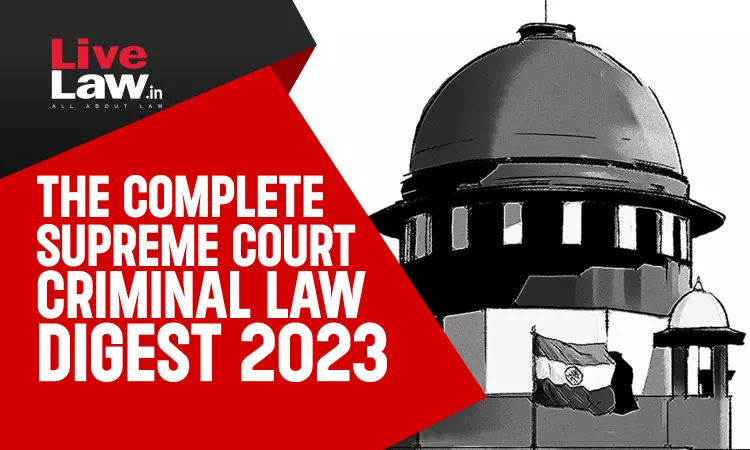- Home
- /
- Supreme court
- /
- The Complete Supreme Court Criminal...
The Complete Supreme Court Criminal Law Digest 2023
LIVELAW NEWS NETWORK
2 March 2024 1:49 PM IST
Abkari ActAbkari Act, 1077; Section 57A- Offence under Section 57A is not limited to the holders of the license under the Act, but refers to anybody who mixes or permits to be mixed any noxious substance, likely to endanger human life with any liquor. (Para 43) Sajeev v. State of Kerala, 2023 LiveLaw (SC) 974 : 2023 INSC 998Abkari Act, 1077; Section 55 - Alcohol as mentioned in Section 55,...
Next Story



